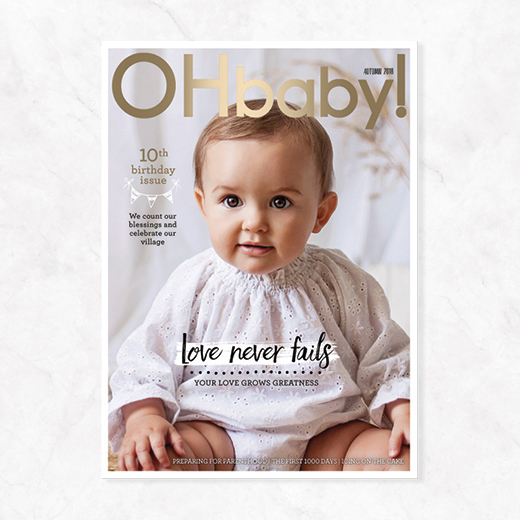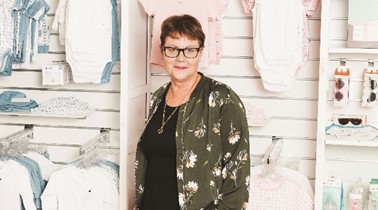When the unexpected happens: take cover

It’s hard to know what your family will need when the unexpected happens. we asked the experts for their advice on how best to insure against life’s risks.
There’s nothing like starting a family to make you more aware of your responsibilities! The good news is that, even if the worst happens, there’s plenty you can do now to make things a lot better for you and your family.
If you’re dependent on a sole breadwinner in your family, it’s worth thinking about how the family will get by if that breadwinner is disabled, or worse, not around at all.
With insurance, your family will have the money to get through and maintain the lifestyle you planned, whatever happens. Insurance isn’t one-size-fits-all, but rather a range of options to suit different situations.
Get the right fit
There are plenty of types of cover, from ‘term life’ right through to funeral cover and everything in between. With the right mix, it will give you and your family peace of mind. Here are the most common types of insurance:
◻️ Term life cover will give your family a tax-free lump sum if you pass away. Premiums will rise as you get older, and you can maintain this kind of policy for as long as you need it. When the kids leave home or the mortgage is paid off, people often decide to cancel the policy and use the freed-up cash for travel or paying down other debt.
◻️ Mortgage repayment insurance is very like term life cover, except it’s linked to your mortgage – it pays off the outstanding debt if you pass before the term is up. With this cover, you can be confident that your family won’t need to leave their home if anything happens to you.
◻️ Trauma insurance covers you for illnesses like heart attack, cancer or stroke, and pays out a specified amount if you’re diagnosed. Having you fall ill is bad enough – your family doesn’t need expenses mounting up as well.
◻️ Disablement insurance provides cover when a serious illness or medical condition means you’re unable to work. Similar to trauma cover, it will pay you
a lump sum, so you can do things like cover the mortgage, receive treatments or make adjustments to your home.
◻️ Income protection pays out a fixed, regular benefit or a percentage of your income every month, if a medical condition or illness means you can’t work. This cover helps your family maintain their standard of living, whatever happens.
◻️ Funeral insurance is just that – for paying funeral expenses, which can be considerable. The premiums are usually set and don’t rise over time, and some policies mature and the premiums stop once you’re old enough. It can be a big relief to a grieving family to know they don’t need to find the cash for a funeral.
Other ways to protect your family
If you can afford to set aside enough cash for emergencies, or you have assets that can be sold to support your children, then you may not need insurance cover. Make sure your cash or assets are easily accessible in case of your unexpected death – you won’t want financial pressure to add to your family’s grief and stress.
Most people don’t have those resources, and they avoid insurance because they see it as too expensive. If that’s the position you’re in, but you still want to protect your little ones, it may be a good idea to buy partial cover – just what you feel you can afford. It won’t replace your whole income, or pay off the mortgage, but it may give enough of a cushion to help your family regroup and get through the worst.
How much insurance do you need?
When you’re thinking about how much insurance cover is enough, you’ll need to ask yourself some important questions.
◻️ What are you aiming for? Just immediate, short-term relief, or will you want support for your littlies until they grow up and can support themselves? Would you like to put your children through university?
◻️ Could your spouse or partner still cope with the mortgage if you die or are disabled? What other debts do
you have?
◻️ Could you and your kids manage on welfare benefits if you can’t work? Is that a risk you’re prepared to take?
◻️ How much spare cash have you got in your budget? How much can you afford in premiums?
Once you’ve faced the answers to these searching questions, you’ll have a better idea of the level of cover you’ll need. The peace of mind you’ll gain could be well worth the effort.
ACC is just for accidents
You might think you don’t need insurance at all; in New Zealand we have ACC which will cover you in many situations. It’s important to remember that ACC covers only injury from accidents, and even then, it only pays out a percentage of your pre-disability income, up to a set maximum.
You also won’t be covered at all if you’re off work due to a medical problem or illness, rather than an accident. Unless you have some form of disability insurance, like income protection, your family will probably have to subsist on a sickness benefit.
The sickness benefit is set at the same level for everyone. It is not adjusted to match your previous income and takes no account of your personal financial commitments. This means your family could be dealing with a dramatic change in lifestyle such as downsizing the family home, moving schools etc, all the while dealing with the stress of your illness.

Covering your family’s health
Everything we’ve already mentioned about life insurance can also apply to health cover. It’s really about considering the level of risk you’re willing to take on behalf of your family.
You can choose full cover for your family or a less comprehensive policy. While you could be happy to rely on New Zealand’s public health service for most day-to-day healthcare, you may want cover for more serious and expensive medical treatments – specialists, surgery and hospital care when you need it.
Each new baby on the way is automatically covered for the first three months after birth. Add them to your policy before they’re 12 weeks old and they can be covered ‘no questions asked’ – no need to supply medical records. There is one exclusion however – conditions known at birth are not covered, but conditions that show up later, such as a heart defect that isn’t detected until your baby is 10 months old, are covered.
Where to find insurance cover
When you’ve decided you need insurance, where do you access it? Lots of people start with their bank, which may not offer a complete range of products.
You could also choose to go directly to an insurance company – this is a popular method for younger consumers and can seem cheaper with the online portals these companies now offer, but it pays to shop around. Some insurers will provide free quotes, and if you’re a member of Consumer NZ, you can access helpful information from their website.
If you’re not even sure what you want, or how to find it if you do, your best bet is to consult a financial adviser. That way you’ll get advice from trained professionals who can remove a lot of the legwork. They can help you examine your risks and define your goals, give you objective advice from their knowledge of the industry, and find just the right products to suit your budget and your plans for the future. They’ll help you navigate the fine print and technical terms, and their services are generally provided free of charge as they receive payment from the insurer for work done.
They’re also bound by regulations to employ care and diligence in finding the right insurance solution to suit you and your little ones. At claim time, you’ll also have them on hand to take on the work of managing your claim and getting the paperwork sorted, which can be a real support during a tricky time. Fundamentally, your advisor works for you, not for banks or insurance companies.
Get on the front foot
Even though you can’t predict the future, there are ways to be prepared to face whatever comes. Ask the right questions, seek objective advice, and get the insurance cover you can afford. Then you can rest in the knowledge that your family will be all right, whatever happens to you.
|
This advice has been provided by Michael Cave, of Cave Financial. |

AS FEATURED IN ISSUE 41 OF OHbaby! MAGAZINE. CHECK OUT OTHER ARTICLES IN THIS ISSUE BELOW

















